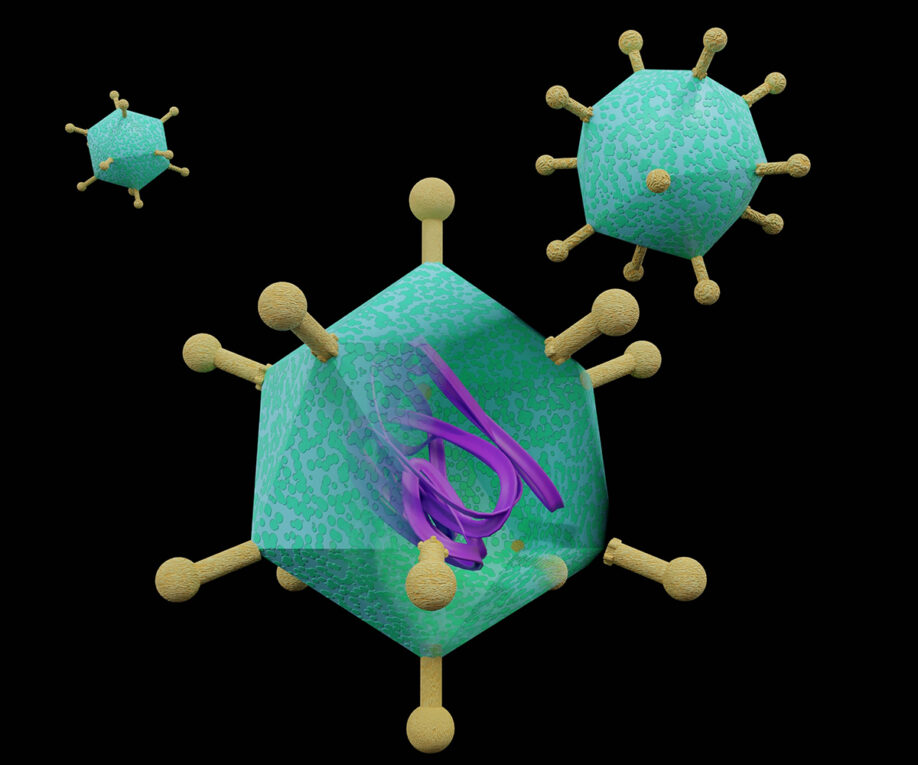Cancer remains one of the leading causes of death worldwide. While traditional treatment methods like chemotherapy, radiation therapy and surgery have improved clinical outcomes for many cancer patients, new approaches are still needed to make cancer a manageable disease. Oncolytic virus therapy is an emerging and promising new strategy that harnesses viruses to selectively target and kill cancer cells.
What are Oncolytic Viruses?
Oncolytic viruses are a special class of viruses that have been genetically engineered or naturally occurring to preferentially infect and kill cancer cells while sparing normal cells. Unlike traditional anti-cancer viruses that are highly pathogenic, oncolytic viruses have been designed to be safe, effective and selective for cancer cells. When injected into tumors, oncolytic viruses are able to infect and replicate inside cancer cells, causing their lysis or death while leaving healthy cells unharmed. As the viruses replicate, they are able to spread to other nearby tumor cells, causing a localized anti-tumor effect known as the oncolytic effect. Oncolytic viruses work by directly killing cancer cells through lysis. They can also stimulate the patient’s own immune system to recognize and attack the tumor.
How Oncolytic Viruses Target Cancer Cells
For oncolytic viruses to selectively target cancer cells, genetic modifications are made to ensure they are able to recognize and infect cells with certain hallmarks of cancer. Common approaches include deleting viral genes critical for replication in normal cells while retaining ability to replicate in cancer cells. Due to genetic mutations in cancer cells, their anti-viral responses may be impaired allowing oncolytic viruses to more efficiently infect, replicate and spread within tumors. Additionally, tumor microenvironments such as lower pH levels, hypoxia and lack of interferons further enhance oncolytic virus selectivity for cancer over normal cells. Oncolytic viruses currently in clinical trials exploit these differences between normal and cancer cells to achieve targeted killing of tumors with improved safety profiles.
Examples of Oncolytic Viruses in Development
Various oncolytic viruses are currently under investigation including herpes simplex virus, adenovirus, reovirus, vaccinia and several others. Some notable examples in clinical use or trials include:
– Talimogene laherparepvec (T-VEC): A genetically modified herpes simplex virus-1 was the first FDA-approved oncolytic virus for the treatment of melanoma. In clinical trials, T-VEC led to durable responses when injected directly into tumors with a good safety profile.
– Crusade/Pexa-Vec: Based on vaccinia virus, this oncolytic had encouraging results in phase II trials for liver cancer when given intravenously or intra-arterially and is in ongoing phase III studies.
– Cavatak: A conditionally replicative form of Coxsackievirus A21 had promising early trial data against different solid tumors both as monotherapy and in combination with pembrolizumab or radiotherapy.
– Oncorine: A genetically engineered adenovirus received Chinese regulatory approval in 2005 for head and neck cancers. It demonstrated good tolerance and anti-tumor effects in combination with chemotherapy.
Clinical Applications and Future Potential
With their novel mechanism of direct oncolysis and immune stimulation, oncolytic viruses hold promise as part of combination strategies for a range of cancers. Early results indicate oncolytic viruses may work well when given locally via direct injection into tumors or administered systemically in combination with chemotherapy, targeted therapies, or immune checkpoint inhibitors. Some key applications under investigation include:
– As neoadjuvant treatment prior to resection to reduce tumor size and increase chance of complete resection
– Consolidating response after other treatments to destroy remaining cancer cells
– Combining oncolytic viruses with immunotherapy to further stimulate anti-tumor immunity
– Using oncolytic virus delivered gene therapy to enhance treatment, such as expression of immune stimulatory molecules
– Developing oncolytic viruses that can selectively target cancer stem cells
– Engineering Oncolytic Virus Therapies that home to metastases for treating advanced or recurrent disease
With ongoing research and new viruses entering clinical studies, oncolytic virus therapy holds promise as both a standalone treatment and as part of combination regimens. Further advances in virotherapy vector engineering, targeted delivery techniques and combination strategies will help realize the full potential of oncolytic viruses for improving outcomes across many cancer types. As our understanding of cancer biology increases in parallel with manipulation of viruses, oncolytic virus therapy may develop into a mainstay cancer treatment approach.
oncolytic virus therapy harnesses the natural abilities of viruses to selectively infect and destroy cancer cells, with recent advances showing clinical benefit. This targeted approach provides a novel mechanism for cancer treatment with potential as both a single agent and in combination with other immunotherapies and conventional interventions. Continued research into improving oncolytic viruses for specific cancers holds promise to significantly advance the management and outcome of cancer patients worldwide.
*Note:
1. Source: Coherent Market Insights, Public sources, Desk research
2. We have leveraged AI tools to mine information and compile it

